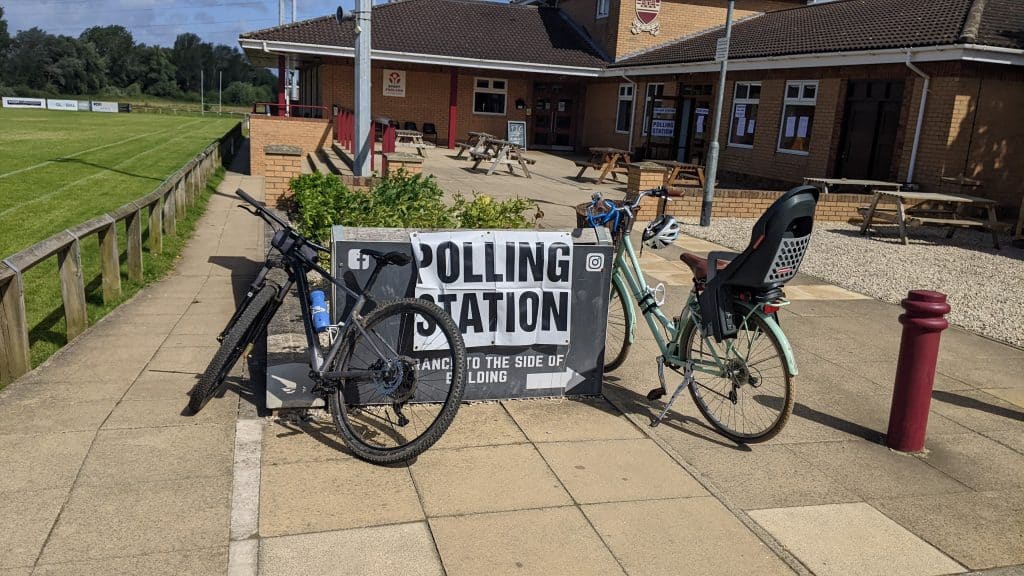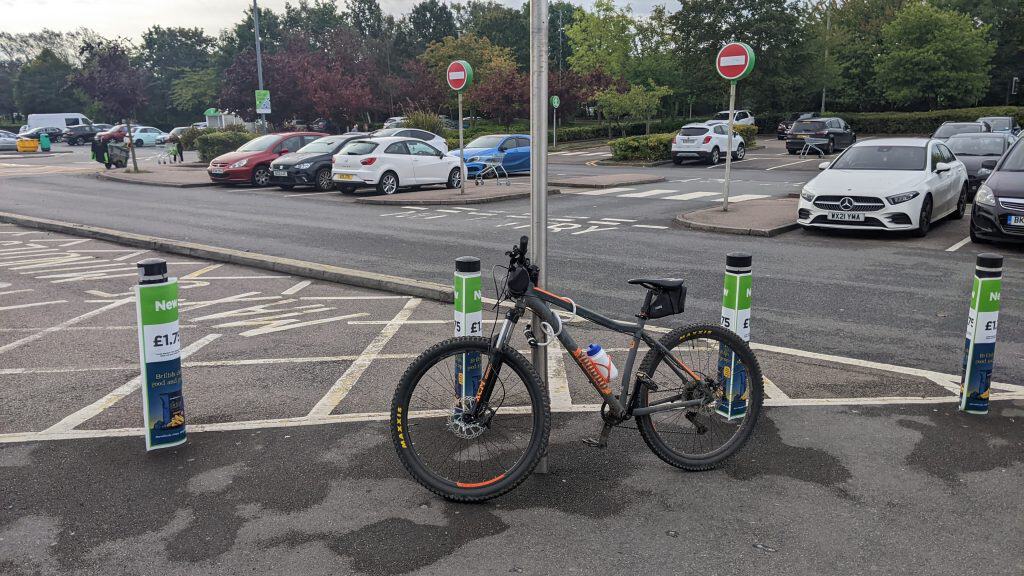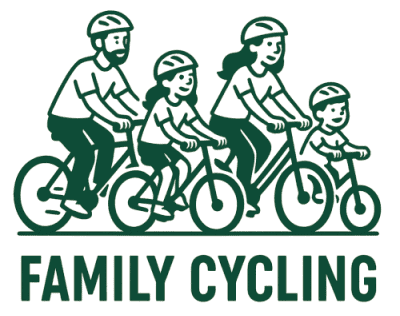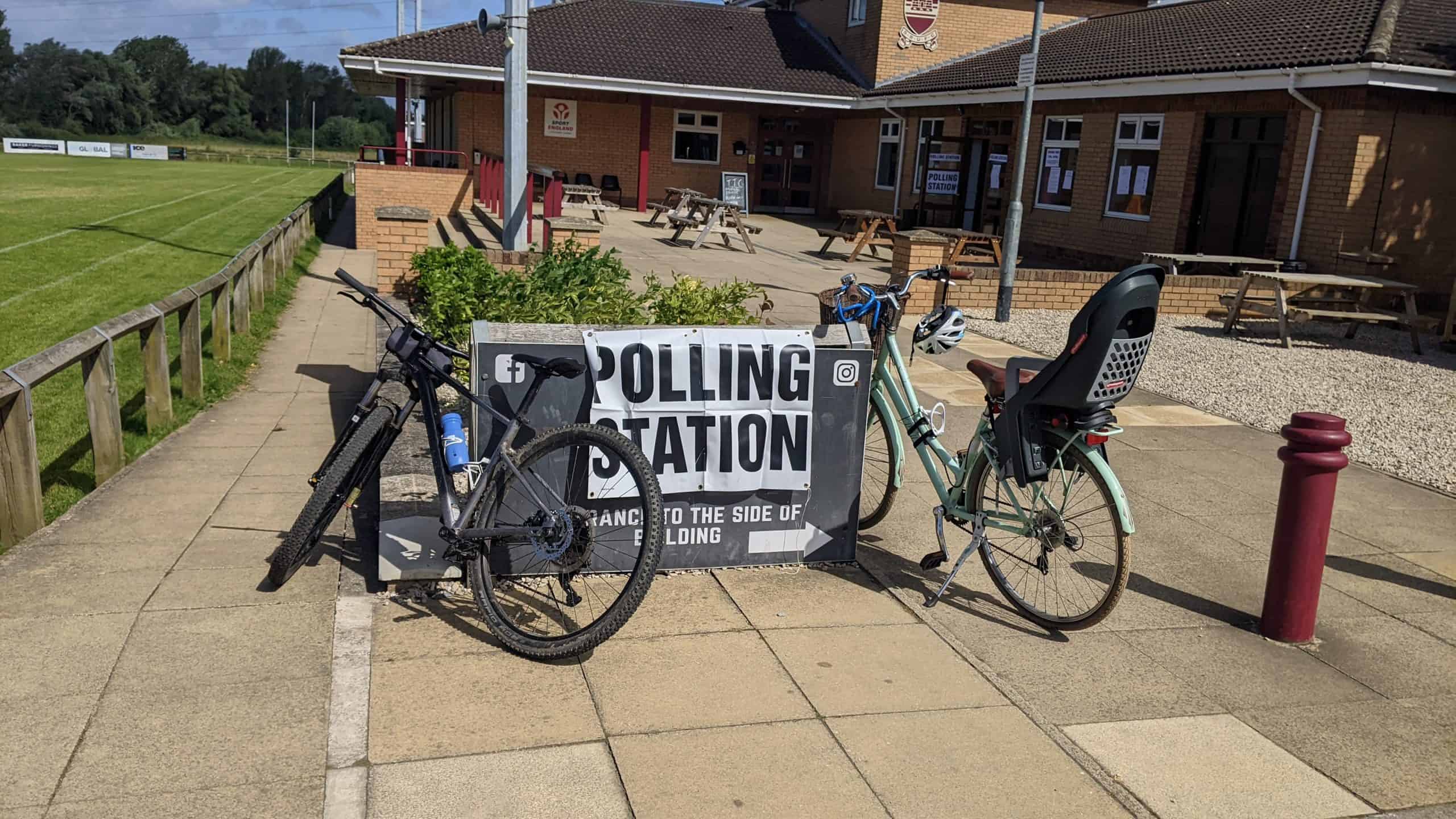In many parts of the world, the car is king. It’s a symbol of freedom, convenience, and status, and for decades, it has dominated the way we think about transportation. With concerns around climate change, pollution, and boosting health (we have an NHS waiting list of over 6 million people) there has been a nod to more active means of transport.
Like everything, however, they have become gambits in a political culture war. Pick a side and argue until the end. But is that the way it needs to be? Maybe the alternative is that we agree that active travel and using the car both have merit for particular journeys.
This article explores the arguments for and against cars and cycling, and why it might be time to rethink how we travel.
The Rise of the Car Culture
For many people, cars represent convenience and freedom. They’re an incredibly flexible mode of transport, allowing us to travel wherever we want, whenever we want. The convenience of a car is undeniable—whether it’s the ability to make multiple stops during a trip, to carry heavy loads, or simply stay warm and dry in the unpredictable weather conditions we are now facing in the UK.
Cars have also become deeply ingrained in our culture as status symbols. Ownership is often tied to personal success and independence, making the idea of giving up the car seem unthinkable for some.
The UK’s infrastructure and urban planning have also catered to cars for decades. Roads are built with cars in mind, and suburban sprawl often means that walking or cycling isn’t always a feasible option. Just look at the development of new housing estates. Many are built on land away from amenities, without pavements. This promotes car use for all its residents and forces people into cars when traditionally a journey could have been done via foot or bike.
For many families, cars are the default choice because they offer practicality for longer commutes, school drop-offs, and busy schedules involving children’s activities. Public transport doesn’t always provide the coverage or convenience people need, especially in rural areas, making cars the easiest option.
While cars are undoubtedly convenient, their dominance comes with costs—both tangible and intangible. Traffic congestion, air pollution, rising fuel costs, and the stress associated with driving are some of the downsides of car reliance.
Moreover, as the population of the UK grows, there is increasingly less space to accommodate the sheer number of vehicles, leading to the question: is there a better way and can we perhaps utilise alternative methods of transportation for journeys where a car is perhaps not required?
Why Cycling Makes Sense
In contrast to cars, bicycles offer a more sustainable, efficient, and health-friendly option, particularly for shorter journeys. For solo trips under five miles, which make up a significant proportion of all car journeys, cycling is often faster, cheaper, and more enjoyable. Cycling isn’t just about getting from point A to point B—it’s also an experience that contributes to your physical and mental well-being.
We have children and before a particular age with kids in tow these journeys can be tricky but part of this is down to infrastructure and the lack of it. But for adults travelling alone or with children over a particular age, this is more than possible.
Health and Well-being
Cycling is an excellent way to integrate exercise into your daily routine. Instead of setting aside extra time to go to the gym, cycling to work, the shops, or for errands means you’re getting exercise while also ticking off essential tasks. This approach to fitness—known as “active transport”—is a simple and effective way to stay healthy without needing to invest extra hours in workouts. Physical activity from cycling helps reduce the risk of chronic diseases such as heart disease, diabetes, and obesity.
The key here is choosing the journeys where it makes sense. If you live 10 miles from work, don’t have showering facilities within your workplace and have a small commuting window then this may not work. For a 1 mile school run or to visit a local supermarket a bike is often the most efficient method of transport.
Beyond the physical benefits, cycling also has profound effects on mental health. The rhythmic motion of pedalling, being outdoors, and the sense of freedom that comes with cycling all contribute to reducing stress and improving mood.
Many cyclists report that their daily commute is one of the most enjoyable parts of their day—a stark contrast to those who spend time stuck in traffic.


Times that you may use the bike.
Environmental Benefits
Cars are a major contributor to greenhouse gas emissions, and every short journey taken by bike instead of car helps reduce these emissions. In cities, where congestion and pollution are at their worst, cycling can make a real difference. Bikes produce zero emissions and have a much smaller environmental footprint compared to cars, whose manufacture, fuel consumption, and eventual disposal all have significant environmental costs.
Moreover, cycling infrastructure requires far less space than car infrastructure. A single-car parking space can often accommodate ten bicycles. Reducing car use means we can reclaim space for parks, walking paths, and community areas, making urban environments more enjoyable for everyone.
In contrast, those who live rurally rely on car use to reach amenities and communities. There are occasions when a bike could be utilised however it’s about matching the mode of transport to the particular environment.
Financial Savings
Cycling is far cheaper than driving. Once you’ve purchased a bike, the ongoing costs are minimal compared to owning a car. There’s no fuel, insurance, or expensive maintenance. Even if you factor in occasional repairs or upgrades, cycling is still significantly more economical.
Even if you still have a car I advocate riding your bike as often as possible. Less wear and tear of the car and less use of petrol will be better for your pocket.
Community and Urban Environment
Cycling can help create stronger, more connected communities. Streets dominated by cars are often noisy, polluted, and unsafe for pedestrians. Have you recently tried navigating the pavements of a traditional terrace street in the UK? They are typically littered with cars and it makes the overall experience difficult as a pedestrian.
In contrast, cycling-friendly streets are quieter, safer, and more pleasant. Cyclists can easily interact with one another and with pedestrians, fostering a greater sense of community. A city that encourages cycling is one that encourages people to spend more time outdoors, interact with their surroundings, and build stronger social bonds.
The Barriers to Cycling
We at Family Cycling are objective, rational people and we understand that there are several reasons why more people aren’t cycling; even for those short journeys. We also understand many of these are genuine barriers. But life is constantly evolving and you need to reassess your situation constantly to find the best solution at the right time. That also includes how you travel.
Safety Concerns
One of the biggest barriers to cycling is safety. Many people find the idea of cycling on busy roads intimidating, particularly if they don’t feel confident navigating traffic or if they’re concerned about inattentive drivers. The lack of safe, dedicated cycling infrastructure in many parts of the UK further discourages people from getting on their bikes.
We feel this too and on occasions in quiet pedestrian areas, we opt for the pavements. With narrow roads and impatient drivers it’s the safest option; particularly when travelling with children. For me, it’s about utilising the space available. If you are cycling on the pavement in a busy part of town and someone is walking the other way always stop to let them past. Practice the hierarchy of vulnerability and use common sense to keep yourself and others safe.
Although a barrier it shouldn’t be a prevention.
Weather and Comfort
The UK’s unpredictable weather is another barrier. Rain, wind, and cold can make cycling less appealing, especially for those who need to arrive at work or other destinations looking presentable. Cars provide comfort and protection from the elements, which is a significant factor for many people.
Cultural Norms and Habits
Cars have been a symbol of status and success for decades, and this cultural association can be difficult to break. For many, owning and driving a car is a deeply ingrained habit. The idea of giving up the car, even for short trips, can feel like a step backwards or an inconvenience.
They say in the UK that it’s either the rich or the poor who cycle. The rich as hobby cyclists on a weekend and the poor as a means of transport. I’d say there’s some truth to this outside of the cities. Many we know don’t see cycling as a viable means of transportation and associate their cars as a sign of ‘doing well’.
Practicality and Family Life
For families, the practicality of cycling can be a challenge. Parents often need to transport children, groceries, and other items, and a car is seen as the easiest way to do this. While there are solutions—such as cargo bikes or bike trailers—these options require an investment and a shift in thinking that not everyone is ready to make.
Larger families, those with very small children and varying needs there’s a practicality issue with cycling which is why it’s not a case of either or.
Challenging the Default: When Cycling Makes More Sense
Despite these barriers, there are many situations where cycling is not only feasible but preferable. Challenging the default choice of using a car starts with understanding when and why a bike might be the better option.
We never advocate people ditch their cars entirely. I believe Cars are one of the most life-changing inventions ever. The fact you can visit some of the most amazing places across the UK and into Europe by car is a modern wonder. But at the same time, your day-to-day life can be improved considerably by challenging the default of hopping in a car. Driving to family in Cambridge? Use the car. The school run? The bike gets the nod.
Short, Local Trips
For short trips within towns and cities, cycling is often the quickest and easiest way to travel. Traffic congestion and parking are major headaches for drivers, whereas cyclists can often bypass traffic jams and park almost anywhere. Whether it’s running a quick errand, meeting friends for coffee, or heading to the gym, cycling can save time and hassle.
Commuting for Productivity and Health
Cycling to work offers an effective way to integrate exercise into a busy day. Instead of spending time stuck in traffic or on crowded public transport, cyclists get a head start on their daily exercise, arriving at work energised and focused. Employers are beginning to recognise the benefits of cycling, with many offering incentives such as bike storage, showers, or participation in the “Cycle to Work” scheme.
Work somewhere 30 minutes or more from your home? Have you actually considered the time you are spending commuting and how you can reclaim that time by choosing a job closer to home or exploring other career paths? Once you place a monetary value on your time and realise your time on this planet is reducing every day the amount you spend commuting and not looking after your health becomes a burden.
Reducing Stress
Driving in traffic, dealing with road rage, and worrying about parking can be significant sources of stress. In contrast, cycling offers a sense of freedom and enjoyment. The opportunity to be outside, feel the wind, and engage in physical activity can turn a mundane commute into a positive part of the day. For many people, cycling is a form of moving meditation, helping them to relax and clear their mind.
I wrote about the stress reduction associated with cycling to school and how it can also open your child’s mind for learning in the morning. This works for adults too.
Rethinking How We Travel
The argument isn’t about getting rid of cars entirely—they’re still necessary for many types of journeys, particularly those involving longer distances or heavy loads. Instead, the goal is to encourage people to think more critically about how they travel and to choose the most suitable form of transport for each trip.
A car might be the best option for a weekend getaway with the family, but for a quick trip to the local shops, a bike could be more practical and enjoyable.
Governments and local councils have a role to play in encouraging this shift. Investment in cycling infrastructure—such as safe, segregated bike lanes, bike parking facilities, and traffic-calming measures—can make a significant difference in making cycling a viable option for more people.
Public awareness campaigns that promote the benefits of cycling, along with incentives such as subsidies for bike purchases or cycling mileage reimbursement, can also help shift the narrative.
Conclusion: Finding Balance
Cars will always have a place in our lives, but they shouldn’t always be the default option. By recognising the situations where cycling makes more sense—whether for health, financial, environmental, or community reasons—we can start to make smarter choices about how we travel.
Cycling is not just a means of transport; it’s a way to improve our health, reduce our environmental impact, and make our towns and cities more enjoyable places to live.The challenge is to break the habit of always reaching for the car keys and to instead ask ourselves: is there a better way to make this journey? This is all we are trying to promote here at Family Cycling. Too many are utilising cars when it would be easier to use a bike. Too many are clogging the pavements with cars and our lungs with fumes when we could be utilising a bike. It’s not a case of one or the other; it’s a case of making an informed decision for a particular journey on a particular day.
For many of our daily trips, the answer might be sitting in the garage, waiting to be dusted off and put to use. A shift in mindset, supported by better infrastructure and awareness, can help make cycling a more common and accepted choice—a win for individuals, communities, and the planet.
Last Updated on January 29, 2025 by Ryan
Hello. I am Ryan and along with my wife Beth and our two children Matilda and Barney, we love all things cycling and exploring. We spend our weekends exploring fun places to cycle and discover and wanted to help other people do the same too. There’s no better way to travel than via bike and it’s an amazing activity for the whole family to enjoy.

